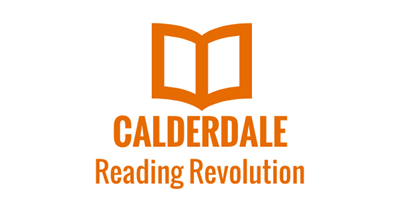Reading
Progression of Skills - Reading
Monster Phonics
At Salterhebble, we use Monster Phonics to enhance teaching and learning of early reading.
Different to any other scheme, Monster Phonics uses colour to consistently code for key graphemes in English. Colour shows children how to pronounce the most difficult aspects of reading. It is unique in that it uses character (monster) phoneme cues and colour coding to represent the long vowel sounds, silent letters and tricky letters. With Monster Phonics, spellings are more memorable, and learning to read and spell becomes exciting and fun!
Please see the attached letter for more information.
Monster Phonics - letter to parents
https://monsterphonics.com/ - website link
TALK THROUGH STORIES
We use Talk Through Stories in Reception, Year 1 and Year 2. This is designed to extend and deepen children's vocabulary so that they can understand the books they will soon be able tor read for themselves. In story time, we help children to get to know the story really well: the plot, the characters and their actions in motives. In vocabulary time, we explore eight words from the story. These words have been specifically selected to develop children's understanding of each work in the context of their everyday lives.
Reciprocal Reading
Across KS2, we use Reciprocal Reading which is a structured and scaffolded approach that emphasises discussion techniques to teach strategies that the children can use to improve their reading comprehension. This teaching technique incorporates four main strategies: prediction, clarification, questioning and summary. Children need to master each of the strategies and apply them to the reading process to be successful and confident readers. The strategies that underlie this method of teaching are utilised every time a person reads; they encourage children to become 'active' readers and to be more involved in their own learning. Due to the emphasis placed on discussion, it also promotes and develop speaking and listening skills.
Our 50-Book Reading Challenge
As part of our World Book Day celebrations, we were thrilled to launch three, 50-book reading challenges, each spanning across two-year groups. Each challenge contains a huge range of specially chosen authors, genres and vocabulary designed to introduce children to the most moving, exciting and entertaining books aimed at their specific age group. We know that these challenges will help our children to discover the magic of reading!
Writing
At Salterhebble, we believe that all pupils should be able to confidently communicate their knowledge, ideas and emotions through their writing. We want pupils to acquire a wide vocabulary, a solid understanding of grammar and be able to spell new words by effectively applying the spelling patterns and rules they learn throughout their time at Salterhebble. We want them to write clearly, accurately and coherently, adapting their language and style in and for a range of contexts, purposes and audiences. We believe that all pupils should be encouraged to take pride in the presentation of their writing, in part by developing a neat, joined handwriting style. We believe that all good writers refine and edit their writing over time, so we want children to develop independence in being able to identify their own areas for improvement in all pieces of writing, editing their work effectively during and after the writing process.
Progression of Skills - Editing and Evaluating
Speaking & Listening









